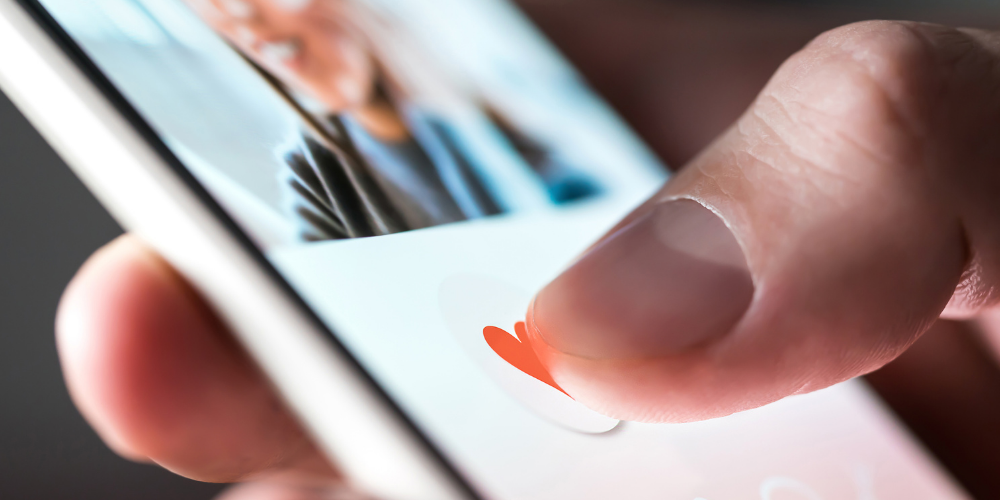3 Steps for Breaking Harmful Smartphone Habits

If you’re one of the 85% of adults in the US who own a smartphone, you’re aware of the amazing abilities of the device in your pocket. You have access to endless knowledge and entertainment. You can get connected to anyone you’ve ever known. You can keep a photographic catalogue of your life and a record of your thoughts and ideas. You can summon a car, a hot meal, and pretty much anything else you want to your doorstep with the click of a button.
In our last blog, we talked about “doomscrolling”, but now let’s talk about habitual phone use more broadly. We’re living in a time where everything is instantly accessible. But with this access to instantaneous answers, entertainment, and stimulation, we’re at risk of losing touch with the world outside of the tiny screen in our palm. This disconnect makes us more susceptible to depression, anxiety, and loneliness; less tolerant of boredom, less creative, and less connected to our immediate surroundings. It makes us less likely to feel fulfilled, to look at our lives and know that we’re living in line with our values.
Not sure if your phone use is problematic? Here are some signs of phone misuse to look out for:
- You frequently use your phone for a period longer than intended
- You’ve had multiple unsuccessful attempts to cut down on phone use
- You lie to others about the amount of time spent on your phone
- Lack of access to your phone causes you anxiety, irritability, or dread
- You use your phone in dangerous or inappropriate situations (e.g., while driving, at mealtimes with others, etc.)
- You use your phone to escape or relieve negative emotions
- You’ve lost interest in things you used to enjoy outside of phone use
Smartphones can be valuable tools used to improve our lives. They can also become sources of endless distraction and habitual use to the point where they no longer serve us.
3 tips for breaking harmful smartphone habits
1. Identify your reasons for changing your phone habits
When we set the intention to break old habits and incorporate new ones, it’s important that we first understand why we want to do this. Start by asking yourself the following questions:
- What would change about your life if you spent less time on your phone?
- Other than yourself, who in your life will benefit from you being more present?
- What would you do with the time you got back after cutting back on phone use?
2. Know your triggers for reaching for your phone
Whether you’re picking up your phone with a goal in mind or just picking it up out of habit, you’re likely to get pulled in by something you see and end up spending a lot more time on your phone than you intended. It can be helpful to identify your common triggers for picking up your phone. By doing so, you’re bringing awareness and mindfulness to an otherwise mindless and habitual behavior.
Common triggers for phone use include:
- Boredom
- Anxiety
- Loneliness
- Quiet or stillness
- Idle time (waiting in a checkout line, for example)
Many times we have a reason for reaching for our phones. We have a thought, a question, or an idea, and we feel the need to see it through. Again, smartphones can be helpful tools. But does every impulse we have need to be satisfied immediately?
3. Make it harder to get pulled in
Again, usually when we pick up our phones it’s a mindless act. Automatic. Anything we can do to allow for a moment of mindful awareness before we pick up our phones can make a huge impact on how frequently we reach for them and how long we spend using them thereafter.
Here are a few ideas for creating space for mindfulness between impulse and behavior:
- In your phone’s settings, set time limits on the apps that pull you in the most
- Establish no-phone “zones” – rooms in your home or daily scheduled times that are phone-free
- Charge your phone away from your nightstand (use a real alarm clock instead)
- Keep your phone in another room while you’re working, practicing a hobby, or spending time with a loved one
- Turn off push notifications
- Change your lock screen to display mindful questions like “what for?,” “why now?,” or “what else?”
Ready to prioritize your mental health?
Great Lakes Psychology Group is here to help. With an extensive network of caring therapists available to meet online or in-person, we make it easy to find the right fit for your unique needs.


